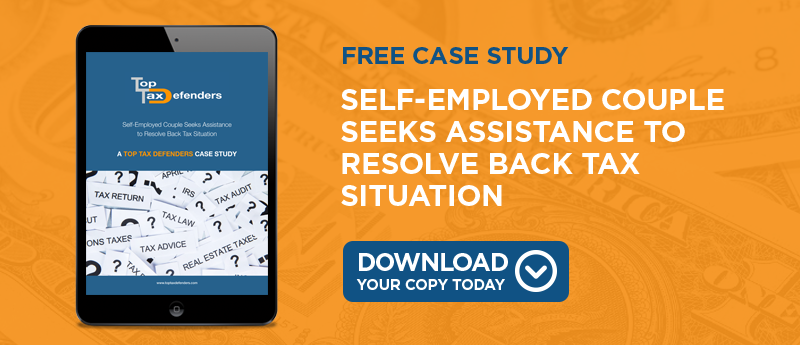Tips for Filing Your 2017 Taxes at the Last Minute
The tax filing season is quickly winding down for this year. If you have not yet filed, you do not have to feel panicked or rush to make this year's April 17 deadline. You can submit your return confidently by using these five last-minute tax filing tips.
File Electronically
When you want to make sure the IRS gets your return well before the deadline, you should file electronically. Filling out and sending in a paper return significantly delays the time that it will take the IRS to get and review it. If you choose the paper and pen filing method, there is no guarantee that it will be received and reviewed before the April 17 deadline passes.
Instead, you should use one of the electronic preparation options available to you online today. You can choose from H&R Block, Tax Act, Turbo Tax, and others. Many of these companies offer free online tax preparation for basic 1040 and 1040EZ returns.
If you used an electronic filing service last year, you can simplify filing this year by importing your data from last year's return. You should only import the data if it is unchanged, however. If you have moved, changed jobs, gotten married or divorced, or experienced other changes in your life, it may benefit you by starting over with a fresh return rather than one with imported data on it.
Know What Documents to Have on Hand
Before you file, you need to gather paperwork that will be crucial to completing this year's return. You need to gather and keep on hand documents like:
- W-2s
- 1099s
- 1095 for proof of health insurance
- Receipts for medical costs, business expenses, and other deductions
- Social Security numbers and dates of birth for all of your dependents
It may help you to have the paper copies of these documents on hand rather than having to refer to online or saved versions of them on your computer. After you file, you should keep copies of these documents stored with the copies of this year's tax return in case you need to refer to them next year.
Contribute to Your Retirement Savings
You still have time to lower your tax burden by diverting some of your income to a retirement savings account. You can put money away for the future in a 401K or Roth IRA. You can divert as much as $5500 if you are under the age of 50.
If you are 50 and over, you can save another $1000 for retirement, thus lowering the amount of taxable income you have to claim. This strategy could also lower how much you have to pay the IRS this year in taxes.
Take Your Time
You may feel panicked because of the approaching tax filing deadline. After all, April 17 is only a few weeks away, right?
You should not let this approaching date worry you, however. You still have time to file, which is crucial for being able to take your time and make sure your return is filled out correctly.
Before you hit that submit button, you should go over the return, verifying key information like:
- The spellings of your name and the names of your dependents
- All dates of birth
- Social Security numbers
- Your address
- Names of employers or companies for which you or your spouse work or contract with
- The math for all sums and deductions
Even the slightest mistake can cause a delay in the processing of your return. It could also lead to the IRS auditing you and your 2017 return.
File Even if You Cannot Pay Your Taxes
The inability to pay your taxes should never be a reason for why you do not file your return. Ideally, you should pay what you owe and request a tax filing extension. However, if you cannot pay the IRS what you know you will owe, you should still file anyway.
Filing when you cannot pay is not the most ideal situation for any taxpayer. However, it gives you an option for working out an agreement to pay with the IRS. When you cannot pay your taxes, you can ask the IRS for:
- An installment agreement
- An Offer in Compromise (OIC)
- Currently Not Collectible (CNC) status
If you are not sure what repayment option to request from the IRS, you should hire a tax professional to help you file your return. Your tax pro can then approach the IRS on your behalf to determine what payment method would work best for your current income and earning situation.
This year's deadline to file taxes is just around the corner. You can file your return with time to spare by using these proactive strategies to file and pay your 2017 taxes.





